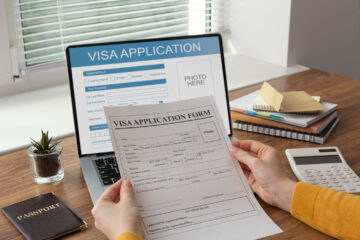Mastering VAT Registration for SMEs in Thailand’s Changing Business Landscape
As an SME operating in Thailand, understanding and adhering to the country’s value-added tax (VAT) system is crucial for maintaining the financial health and legal compliance of your enterprise. Navigating VAT registration and subsequent compliance can be challenging for SMEs operating in the dynamic Thai business landscape. However, comprehending its intricacies and benefits is vital for success in this competitive market.
In this guide, we’ll look into the VAT registration process, the associated legal requirements, and the crucial benefits for SMEs in Thailand. Our aim is to provide you with valuable resources and insights to understand and successfully navigate through VAT registration complexities, empowering your SME to operate efficiently and profitably within the Thai market.
By thoroughly grasping the significance of VAT registration, associated compliance requirements, and its benefits, you can ensure your SME remains financially stable and legally compliant. In doing so, you will not only safeguard your business’s reputation but also position it for optimal growth and success within an ever-evolving and competitive Thai market.
1. Understanding Thailand’s VAT System and Registration Requirements
To successfully navigate VAT registration, it is essential for SMEs to familiarize themselves with Thailand’s VAT system and the corresponding legal requirements:
a. VAT Overview: VAT in Thailand stands at a standard rate of 7%, applied to the sale of goods and services, as well as the import of goods. Certain exceptions and exemptions exist, such as zero-rated goods and services, which include exported goods and international services.
b. Mandatory VAT Registration: Thai SMEs must register for VAT if their annual revenue exceeds THB 1.8 million. Additionally, foreign businesses providing services in Thailand should register for VAT, irrespective of their revenue threshold.
c. Voluntary VAT Registration: SMEs with annual revenue below THB 1.8 million can voluntarily register for VAT. This choice can be advantageous for certain businesses, as it enables them to claim input VAT credits, potentially reducing their overall tax liability.
2. The VAT Registration Process for SMEs in Thailand
To ensure a smooth VAT registration experience, follow these essential steps:
a. Obtain Necessary Documentation: Gather required documents such as your company registration and shareholder information, as well as identifying and registering authorized representatives for VAT purposes.
b. Complete Application Forms and File with the Revenue Department: Submit the VAT registration application (Form VAT 01) and supporting documents to the Revenue Department either in person, online, or via mail. If approved, you will receive a VAT certificate and registration number.
c. Attend VAT Training: Following successful registration, new registrants are required to attend a VAT training course provided by the Thai Revenue Department within a specified timeframe.
3. Complying with VAT Reporting and Payment Obligations
Following successful VAT registration, SMEs must adhere to ongoing VAT reporting and payment obligations in Thailand:
a. Prepare and Submit VAT Returns: VAT-registered businesses are required to submit monthly VAT returns (Form VAT 30) to the Revenue Department, regardless of whether any VAT is due. Submission deadlines are the 15th day of the following month for paper returns and the 23rd day for e-Filing.
b. Remit VAT Payments: VAT payments must be made alongside VAT return submissions, either at a designated bank or via the Revenue Department’s online payment system. Late payment incurs interest charges at a rate of 1.5% per month.
c. Maintain Accurate Record-Keeping: Ensure comprehensive and accurate VAT records are maintained and made available for inspection by the Revenue Department. Record-keeping requirements include issuing valid tax invoices for VAT-registered customers and retaining records for a minimum of five years.
4. Seeking Assistance from a Professional VAT Service Provider
Managing VAT registration and compliance may prove time-consuming and challenging for SME owners. Engaging a professional VAT service provider can alleviate this burden, offering several benefits:
a. Expert Guidance: Engaging a professional service provider equips your SME with the necessary knowledge and expertise to navigate the complexities of VAT registration and compliance.
b. Efficient and Accurate Handling: Partnering with experienced VAT specialists ensures the efficient processing of your VAT registration, management of ongoing reporting, and meeting deadlines for compliance.
c. Customized Solutions: Professional VAT service providers tailor solutions to your SME’s unique requirements, helping to optimize tax planning and minimize liabilities where possible.
Navigating VAT Registration with Confidence to Foster SME Success in Thailand
By understanding Thailand’s VAT system, the registration process, compliance requirements, and the potential advantages of partnering with a professional VAT service provider, you can confidently navigate the complexities of VAT registration and position your SME for growth and success in the Thai market.
As a one-stop service solution specializing in online accounting, Thai company registration, and secretarial services for SMEs in Thailand, we understand the intricacies of Bangkok VAT registration. Our experienced team is well-equipped to assist your business in navigating this complex process. Reach out to us today to seek the knowledge and guidance your SME needs for successful VAT registration and compliance in Thailand’s dynamic business landscape.



0 Comments